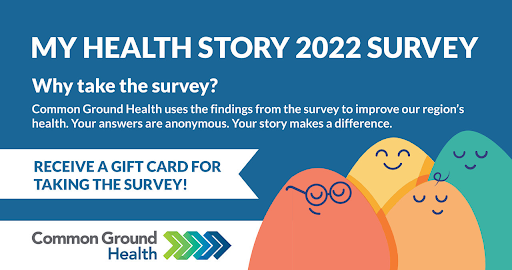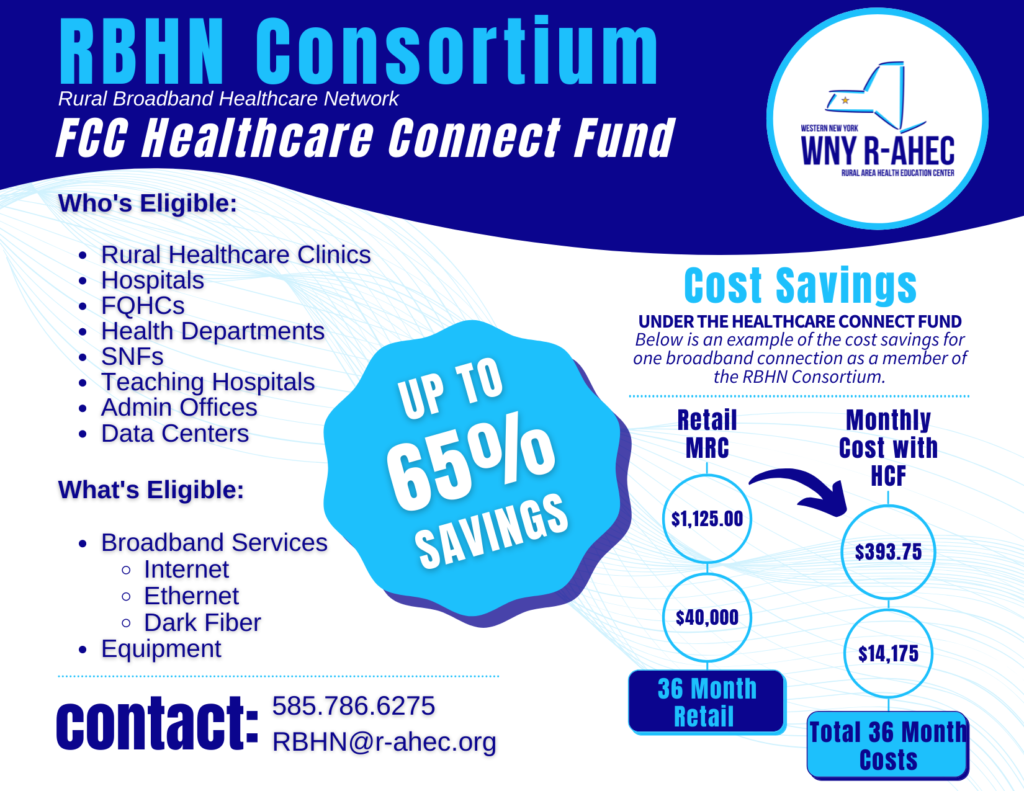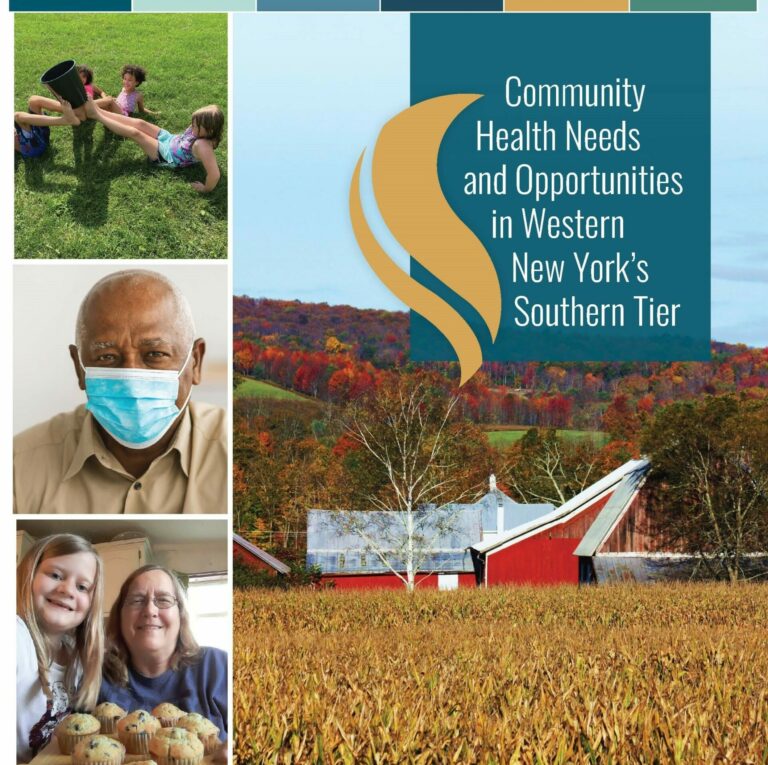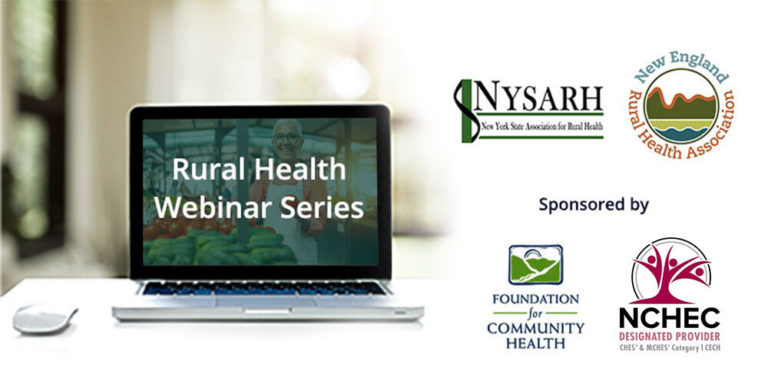NYSARH Newsletter
Summer 2022
Working to preserve and improve health and human services in rural New York State.
June 2022 - August 2022
In this Issue
The NYSARH Rural Health Symposium
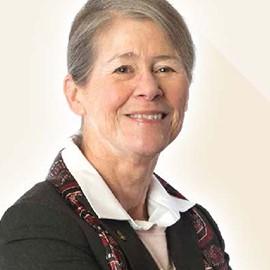
The Rural Health Symposium will be held virtually on September 23, 2022. Please join with other rural stakeholders to hear Janice Probst, PhD, Distinguished Professor Emerita and Director of the Rural and Minority Health Research Center at the Arnold School of Public Health, University of South Carolina.
Dr. Probst has written numerous articles and papers regarding rural health disparities. She is particularly known for coining the term ‘structural urbanism’ to explain how public health and healthcare systems unintentionally continue to disadvantage rural populations.
https://www.healthaffairs.org/doi/10.1377/hlthaff.2019.00914

NYSARH is honored to announce that New York State Commissioner of Health Dr. Mary Bassett will address the Symposium to share her priorities for rural health.
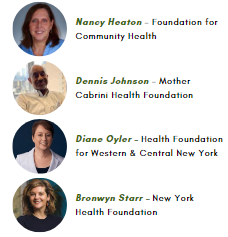
The Symposium will include the first-of-its-kind Philanthropy Panel for rural health advocates. We know that funding diversification is important for long-term sustainability. This presentation will help your organization position itself for private funding.
The Symposium will include the NYSARH Annual Meeting at 3PM. Please plan to join us!
NYSARH Member Successes: Health Story 2022 Brings Focus to Health Equity
As part of its mission to understand and bring focus to health equity, Common Ground Health is launching its My Health Story 2022 survey. Residents of Chemung, Genesee, Livingston, Monroe, Ontario, Orleans, Schuyler, Seneca, Steuben, Wayne, Wyoming and Yates counties are invited to answer questions about their health by completing the online survey at MyHealthStory2022.org and MiHistoriadeSalud2022.org.
The goal is to provide a vehicle for at least 10,000 respondents to share their health stories, especially under-resourced communities and individuals whose stories are often left out of efforts like these. Survey responses will help deepen understanding of the dynamics that drive health equity, and reveal where program and policy changes could make our communities healthier. The survey will be open throughout the summer.
“Four years ago, Common Ground Health conducted the My Health Story 2018 survey, which led to a host of insights that were published in health equity reports such as Overloaded and The Color of Health,” said Mary Beer, Ontario County public health director. “These learnings also formed the foundations of health improvement plans developed by local health departments.”
“We look forward to hearing the health stories of our community – especially in this critical moment as we emerge from COVID-19,” said Wade Norwood, CEO of Common Ground Health. “Our 2022 survey delves into the key factors that play an outsized role in determining people’s health including housing and transportation and examines the direct impact on health throughout all stages of life. We believe these findings will be key to understanding what services our community needs in the coming years.”
In 2018, nearly 7,000 residents participated in the survey. Key findings included:
Housing impacts health in many ways. People who are stressed about housing payments are more likely to have health problems.
Early death rates are as high in some rural communities as they are in poorer urban neighborhoods.
African Americans struggle with dramatically higher rates of heart disease than other groups.
Residents with the lowest incomes had three times the feelings of helplessness versus their higher income peers.
By the time the survey closes, we will have introduced new accessibility and inclusion features to reach even more residents in the community. “For the findings to be meaningful, participation is needed from as many residents as possible,” explained Norwood. “We encourage everyone to share the link with friends, family and colleagues. Everyone’s story can make a difference.”
Participants can complete the survey anonymously. It is available in English at MyHealthStory2022.org, and in Spanish at MiHistoriadeSalud2022.org. An ASL version of the survey will be available soon. A toolkit to share word about the survey is available by emailing survey@commongroundhealth.org.
Support for this newsletter was provided by the WNY Rural Area Health Education Center (R-AHEC)

Value Proposition Project
Upstate Institute Fellow Yinuo (Helen) Lin ’23 was placed with NYSARH this summer to work on a Value Proposition project. She conducted 28 interviews with Board members, NYSARH members and non-members and utilized the results of a Stakeholder survey conducted in July. She found that members value NYSARH for advocacy, networking and education. She presented the following recommendations on July 25th:
A better and more efficient way to communicate with and between members, and to recognize their needs.
Synchronous and asynchronous engagement during COVID.
A more specific direction for NYSARH’s future operation.
Initiate more collaborations with higher educational institutions and other rural associations.
NYSARH President speaks on Rural Health Disparities
In 2020, the Health Foundation for Western and Central New York launched a new strategic plan and vision with a focus on socioeconomic and racial health equity. This strategic plan includes a commitment to addressing health disparities in the rural communities they serve. To support this commitment, the Foundation commissioned a scan to identify opportunities for improving outreach efforts to three rural counties in the Southern Tier of western New York—an area with vast health needs that have been historically under-resourced.
The narrative report resulting from this scan, Community Health Needs and Opportunities in Western New York’s Southern Tier, finds that overarching systemic needs rooted in the social determinants of health exist throughout rural communities and are major contributors to health outcomes. Transportation access, health care workforce shortages, under-funded community services, historical trauma associated with race and geography, and the impact of poverty are among the factors named as contributing to health disparities.
NYSARH President Helen Evans spoke about this report at Health Foundation for Western and Central New York webinar titled, “A Conversation on Health Disparities in Rural New York” on July 18, 2022.
Rural Perspective Needed: New York State Colorectal Cancer Action Team
 NYSARH was approached by the NYS Cancer Consortium. They need more rural perspectives to guide their work. Please consider volunteering to be involved with the Colorectal Cancer Consortium Action Teams.
NYSARH was approached by the NYS Cancer Consortium. They need more rural perspectives to guide their work. Please consider volunteering to be involved with the Colorectal Cancer Consortium Action Teams.
Governor Hochul Signs RESTORE Bill
Governor Hochul signed into law legislation (S.9193 Hinchey/A.10271 Woerner) that was introduced at the request of the Rural Housing Coalition.
The bill makes several enhancements to the RESTORE program including the following:
- Raises project cap from $10,000 to $20,000
- Eliminates intermediate contract due dates
- Raises administrative fee from 7.5% to 10%.
Student Resources and Opportunities
Upcoming Student Workshop: National Center for American Indian Health Professions Pre-Admissions Workshops - August 24th, 2022
American Indian and Alaska Natives who are recent college graduates or current students in high school, community college, or undergraduate may apply for a three-day workshop to prepare for admission to medical school.
Intern - Hepatitis Program Assistant, Viral Hepatitis Program at NYC Department of Health & Mental Hygiene (Paid Internship)
Student Volunteer - CUNY SPH CATCH (Center for Advanced Technology and Communication in Health)
Research Assistant - CUNY SPH, Institute for Implementation Science and Population Health
Fall Intern - Age Friendly Health Systems, Healthcare Association of New York State
College Assistant - CUNY SPH Pandemic Response Institute
Funding Opportunities
NY Forward - Governor Hochul announces $200 million in funding to revitalize downtown areas in communities across New York state
Exciting news for NY’s downtowns—both large and small!
Governor Kathy Hochul announced $200 million in funding for two major downtown revitalization initiatives—NY Forward, a new program aimed at rejuvenating NY’s smaller and rural communities, and Round 6 of the state’s successful Downtown Revitalization Initiative (DRI), each funded at $100 million. An informational brochure is available that describes both programs.
The first five rounds of DRI provided $600 million to 59 communities for projects that are now reinvigorating downtowns throughout the State. NY Forward accelerates and expands that momentum by providing $100 million in funding, as well as capacity-building workshops and technical assistance, for the type of smaller and rural downtowns typically found in villages, hamlets and other small, neighborhood-scale municipal centers. Together, these programs will ensure that no community is left behind in the unprecedented renaissance in downtown revitalization sweeping across New York State.
Communities are strongly encouraged to provide a Letter of Intent to Apply for DRI and NY Forward by August 10th; further program materials for DRI and NY Forward will be available on July 25th.
HHS Invests Over $4.9 Million to Strengthen Health Care Workforce and Improve Access to Care in Rural Communities in New York
This announcement reflects HRSA’s investments through the following programs:
The Rural Public Health Workforce Training Network Program is awarding over $4.5 million to three community-based organizations to expand public health clinical and operational capacity through workforce development. Additionally, a national technical assistance provider was awarded $500,000 to strengthen the ability for these networks to develop formal training and certification programs.
The Small Health Care Provider Quality Improvement Program is awarding nearly $400,000 to two community-based organizations improve patient health outcomes and quality and delivery of care throughout rural counties.
PA-20-068 Improving Quality of Care and Patient Outcomes During Care Transitions (R01) - Due September 25th, 2022
This Funding Opportunity Announcement (FOA) invites R01 grant applications for funding health services research that improves the quality of care and patient outcomes during transitions of care. The purpose of this FOA is to support large-scale research projects that rigorously test promising interventions aimed at improving communication and coordination during care transitions.
DOT-RCP-FY22-01DOT Reconnecting Communities Pilot Discretionary Grant Program – Due October 13th, 2022
The U.S. Department of Transportation (DOT) estimates 125 grants for projects that reconnect disadvantaged communities by removing, retrofitting, or mitigating highways or other transportation facilities. The program seeks to award funding to rural and tribal areas to increase access to jobs, healthcare, grocery stores, schools, and other community destinations.
PAR-20-310 Health Services Research on Minority Health and Health Disparities (R01- Clinical Trial Optional) - Due November 17th, 2022
The purpose of this FOA is to encourage health services research that can directly contribute to the improvement of minority health and/or the reduction of health disparities, while taking into consideration the interaction between system-level healthcare, individual clinical care, and social determinants of health, including the role of structural systemic factors, place and neighborhood factors.
The “Conversations on Rural Health Disparities” Micro-grant Fund - Due December 31st, 2022
The Health Foundation for Western and Central New York has established a micro-grant fund to support those who want to come together for dialogue, learning, and action planning related to community health needs in rural communities. Applications will be accepted on a rolling basis until December 31, 2022.
MEMBER LIST
We would like to thank each member who works diligently to make NYSARH the state’s strongest proponent for rural healthcare.
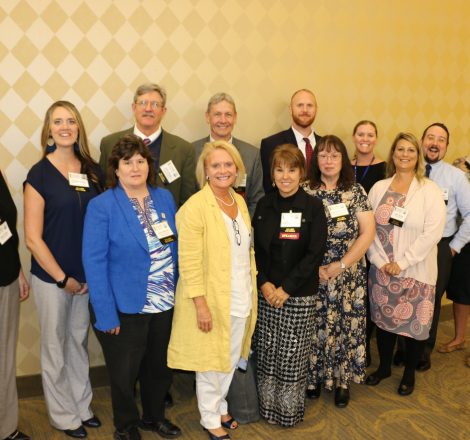
Organization-based Members
- Adirondack Health
- Adirondack Health Institute
- Ardent Solutions
- Brooks TLC Hospital System, Inc.
- Catskill Hudson Area Health Education Center
- Care Compass Network
- Cayuga County Community Health Network, Inc.
- Chenango Health Network, Inc.
- Common Ground Health
- Community Health Center of North Country
- Delaware Co Rural Healthcare Alliance
- Ellenville Regional Hospital
- Finger Lakes Community Health
- Finger Lakes IPA
- Fort Drum Regional Health Planning Organization
- Foundation for Community Health
- Genesee County Health Department
- Genesee Valley Health Partnership
- Healthy Community Alliance, Inc.
- Health Workforce New York
- Lake Plains Community Care Network
- M.S. Hall & Associates, LLC
- Madison County Rural Health Council, Inc.
- North Country Family Health Center, Inc.
- North Country Healthy Heart Network
- North Country Prenatal Perinatal Council, Inc.
- Oneida Health Foundation
- Opportunities for Otsego, Inc.
- Prevention Network
- Rural Health Education Network of Schoharie, Ostego, and Montgomery Counties
- Rural Health Network of South Central New York
- Rural Outreach Center
- S2AY Rural Health Network
- Seven Valleys Health Coalition
- Southern Tier Health Care System, Inc.
- Steuben County Rural Health Network
- St. Lawrence County Health Initiative, Inc.
- Sullivan County Public Health Services
- SUNY Upstate Medical University College of Nursing
- The Chautauqua Center
- The Healthcare Consortium
- The Resource Center
- Universal Primary Care
- Upper Hudson Planned Parenthood
- Upstate Family Health Center, Inc.
- UR/St. James Hospital
- Wayen County Rural Health Network
- Wyoming County Community Health System
Organization-based Members
| Wayne County Rural Health Network |
| SUNY Upstate Medical University College of Nursing |
| Catskill Hudson Area Health Education Center |
| Le Moyne College Department of Physician Assistant Studies |
| Madison County Rural Health Council Inc |
| Delaware Co Rural Healthcare Alliance |
| Brooks-TLC Hospital System, Inc |
| Genesee Valley Health Partnership |
| Association on Aging in New York, Inc |
| North Country Healthy Heart Network |
| Central New York Area Health Education Center |
| Northern AHEC |
| Finger Lakes IPA, Inc |
| Lake Plains Community Care Network |
| Genesee County Health Department |
| Chenango Health Network, Inc |
| Human Services Coalition of Tompkins County |
| Cayuga County Community Health Network, Inc. |
| Ardent Solutions |
| Seven Valleys Health Coalition |
| Southern Tier Health Care System, Inc. |
| S2AY Rural Health Network |
| Steuben Rural Health Network |
| Health WorkForce NY (HWNY) |
| Fort Drum Regional Health Planning Organization |
| Onondaga Council on Alcoholism & Addictions, Inc. d.b.a. Prevention Network |
| Jones Memorial Hospital |
| Healthy Community Alliance, Inc. |
| St. Lawrence County Health Initiative, Inc. |
| The Healthcare Consortium |
| North Country Prenatal Perinatal Council, Inc. |
| Rural Health Network of SCNY |
| Upstate Family Health Center, Inc. |
| Oneida Health Foundation |
| Rural Outreach Center |
| Common Ground Health |
| M.S. Hall & Associates, LLC |
| Adirondack Health Institute |
| The Chautauqua Center |
| Sullivan County Public Health Services |
| Upper Hudson Planned Parenthood |
| Ira Davenport Memorial Hospital/ArnotHealth |
| Rural Health Education Network of Schoharie, Otsego, Montgomery |
| Clinton County Health Department |
| The Compliance Team, Inc. |
| Planned Parenthood of Central and Western New York |
| Wyoming County Community Health System |
| Finger Lakes Community Health |
| Adirondack Health |
| Care Compass Network |
| STCHCN – Universal Primary Care |
| The Resource Center |
Individual Members
Lenn Johns |
Douglas Wildermuth |
Alex Brooks |
MARELA FIACCO |
John Salo |
Steven Kroll |
Susan Salahshor |
Kristen Stiegler |
Karin Pantel |
Diane Albrecht |
Jennifer Seymour |
Janice Shirley |
David Yens |
|
Elizabeth (LIz) Urbanski Farrell |
Nicole Rouhana |
Ann Abdella |
Leanna Cleveland |
Carrie Roseamelia |
Ali Coates |
Anthony D’Agostino |
Virginia Bough |
Sara Wall Bollinger |
Mandy Qualls |
Student Members
| Audreanne Mills |
| Bridget Oppong-Darko |
| Susan Cagir |
| Stacie Corrigan |
| Frances Oquendo |
| Ruthanne Parsons |
| Jennifer Bliss |
| Tammy Ellinger |
| Emilee Conner |
| Theekshana Fernando |
| MADALINE TOLIVER |
| Ayden Weimann |
| Elana Sitnik |
| Ella James |
| Grace Gugerty |
Become a Member
We invite you to join us through advocacy and by advancing initiatives that support a commitment to improving healthcare quality and access.

